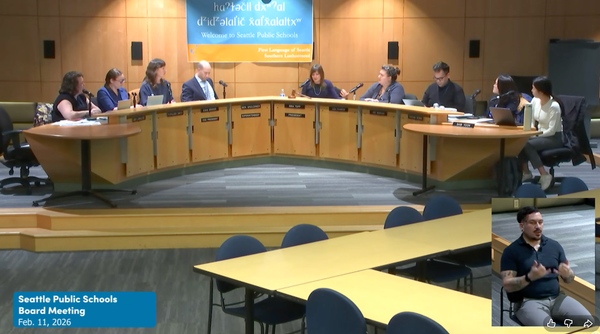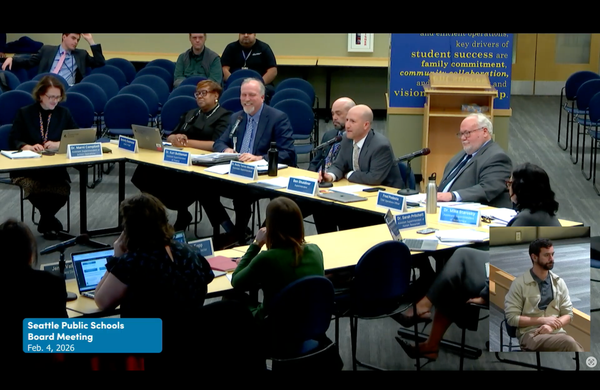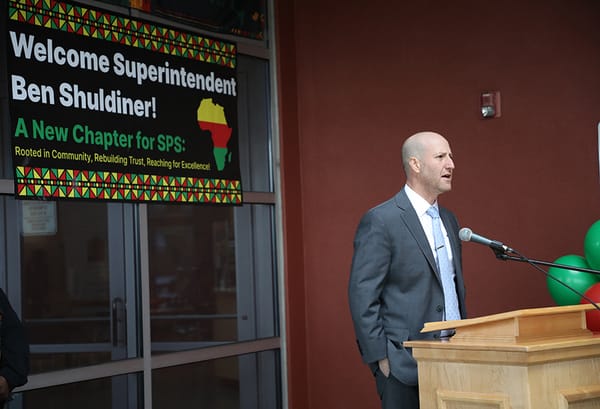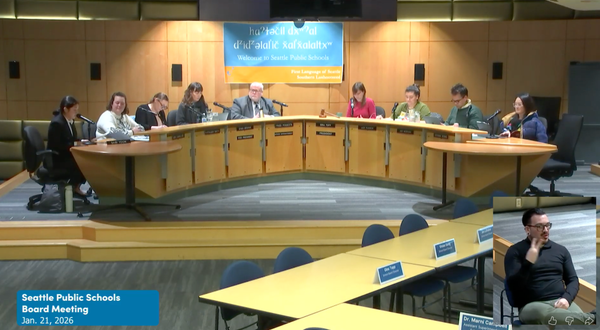Issue 1 -- SPS Names Ben Shuldiner as Superintendent Finalist
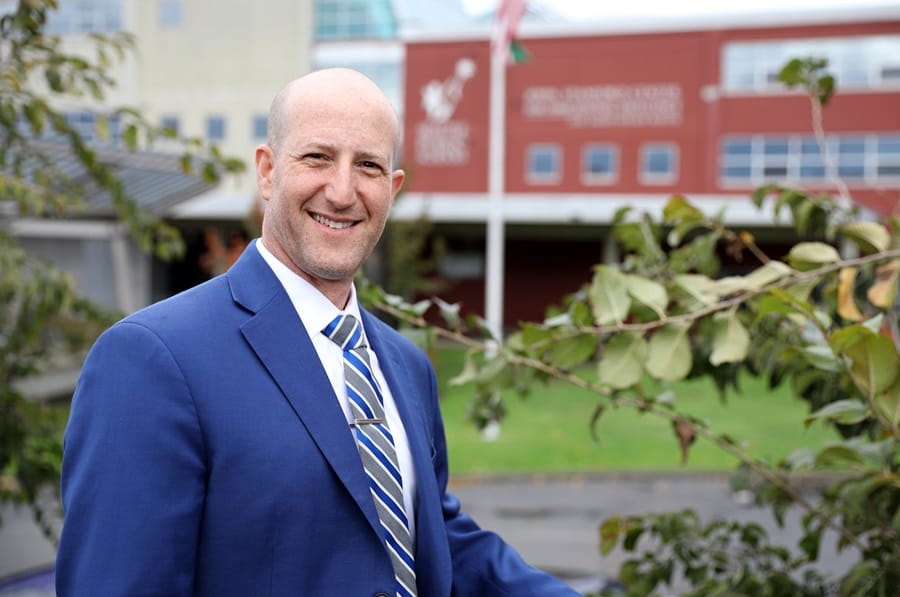
In this issue:
Welcome to The Bulletin!
When I was a kid in public schools in Orange County, California, I used to get a school bulletin full of important news and information about what was happening on campus. Sometimes its contents would be read over the loudspeaker in the morning. Other times it was just handed out.
I loved reading the school bulletin, just as I loved reading the morning newspaper. When it came time to give a name to this newsletter, The Bulletin immediately came to mind. I hope you enjoy reading it.
This newsletter will be written by a group of Seattle activists committed to covering public education issues in our city. We bring diverse perspectives and experiences, but share a common goal: keeping our community informed about what's really happening in our schools.
Here’s why we are launching this newsletter:
Seattle loves its public schools. We regularly vote to tax ourselves to fund them, and by large margins. We’ve rejected initiatives to privatize our schools, from charters to vouchers. Our schools have great teachers, strong community backing, and wonderful students.
Unfortunately, our schools are also in crisis. Years of underfunding by the state, the presidency of Donald Trump, and the mismanagement at the district office all combine to undermine our students’ ability to learn, to be safe, and to thrive.
Seattle Public Schools leaders in the district office have an unrelenting hostility toward the public, particularly parents and students. They make decisions that harm students and their learning. When the public pushes back, the leaders double down on bad decisions, turning issues of educational policy into a power struggle.
Seattle parents are well aware of this. All across the city, families and students regularly share information about the latest outrage committed by district leaders, and discuss how to mobilize and fight back. Some of the largest protests targeting local government in recent years have come at the SPS offices. Hundreds of parents showed up in fall 2024 to oppose a mass school closure plan. Nearly a thousand students walked out and rallied at the SPS office in fall 2025 to oppose a plan to split their lunch periods.
Even so, nobody is covering the unfolding crisis that is engulfing public education in Seattle and in Washington State as a whole. Sure, there are reporters who cover public education, in print and on TV, on the radio and online — and we’re grateful to them for their work. But they haven’t peeled back the layers to show the wider public how dire the crisis has become or what’s really happening inside district offices. Scandals go uncovered. Sweeping changes go unreported. Key nuances and details are missed.
SPS is at a major turning point. With new school board members just elected and a new superintendent about to be hired (see below), Seattle has an opportunity to finally build a great public school system for the next generation and end the mismanagement at SPS. Or we could squander the moment and see the system fall apart as families flee, schools close, and privatization takes wider hold.
A newsletter alone won’t change the outcome, but maybe we can help. We’re launching The Bulletin, a regular newsletter that will keep you updated on what’s really going on in SPS. This is an all-volunteer production. We all have kids in SPS and full-time jobs. And we’re committed to making public education succeed in Seattle.
The Bulletin has one fundamental point of view: that Seattle deserves to have a great public school system in which every single child can thrive. Where students of all backgrounds come together, to learn to work and live together, to build a healthy, thriving society. And where SPS’s leaders see families and students as partners, not enemies, with a district administration that embraces a culture of public service, not top-down command and control.
We hope you’ll subscribe. While this is a volunteer production, this newsletter isn’t free to produce. There are some small monthly hosting costs that you can help cover by clicking here to subscribe. We hope you’ll forward it to other members of your school community.
We also welcome your suggestions, your news tips, and even your article submissions. (We eagerly welcome contributors, as long as you’re generally aligned with the mission of this newsletter.) You can send those in at tips@thebulletinsea.org.
Thanks for reading, and for being a strong supporter of public education in Seattle.
This inaugural issue comes at a time of major SPS news, so let’s get right to it:
SPS Names Ben Shuldiner as Superintendent Finalist
by Robert Cruickshank
Last week the Seattle Public Schools board of directors announced Ben Shuldiner, superintendent of the public schools in Lansing, Michigan, as their finalist for the job of superintendent of SPS. Shuldiner also did a media tour and met with invited guests at Rainier Beach High School.
Shuldiner’s background includes political savvy as well as multiple levels of school leadership. He served as founder and principal of the public High School for Public Service in Brooklyn, New York. In 2015 he was appointed by progressive New York mayor Bill de Blasio to the city’s school board (NYC’s school board is appointed by their mayor), serving in that role until 2018.
In 2006, Shuldiner ran for Congress in a swing district in New York. He ran on a progressive platform of Medicare for All and, crucially, opposition to No Child Left Behind. He lost the primary, but that campaign and especially his opposition to NCLB will serve him well in Seattle, a city that has long been hostile to high-stakes testing. But it may set up a conflict with senior administrators at SPS who want to turn education into test prep. (All three of the current strategic plan goals are based on test scores.)
Lansing was Shuldiner’s first position as a superintendent. Lansing parents had mixed reviews of Shuldiner’s tenure. Comments on social media suggest some parents believe he did a decent job in challenging circumstances, whereas others felt he neglected important problems. This range of opinion is pretty normal for a school district, and suggests Shuldiner didn’t make any particularly controversial decisions that alienated large swaths of the community.
Michigan has been a target of the school voucher movement, led by Michigan-based Betsy DeVos, who served as Trump’s education secretary in his first term. This erodes funding for public schools, but also makes it more important for school leaders to focus on attracting families and growing enrollment. Washington State doesn’t have vouchers, but we do have charter schools, as well as private schools. Families also try to enroll kids in nearby public school districts. Shuldiner will need to work hard to retain and attract families in SPS, and may bring some experience with this.
One area of concern that Lansing residents have raised is around special education. In 2024 a special education teacher sued Lansing Public Schools, claiming the district was routinely failing to honor IEPs. She also alleged that the district violated whistleblower protections.
A similar lawsuit could easily be filed here. SPS has long been hostile to families with kids needing special education services, and routinely denies IEPs to students who clearly deserve them. (Ask me how I know.) Shuldiner will need to improve SPS’s record on special education if he’s to succeed at rebuilding public trust.
The board was unanimous in choosing Shuldiner. All seven current directors backed him. That includes Sarah Clark, who wasn’t at last week’s board meeting, but indicated her strong support for him at previous meetings. That unanimity is curious, given the strongly divergent goals for the district among different directors. It will be interesting to see why Rankin and Clark, for example, agreed on Shuldiner.
Some key questions to consider about this hire:
- Will Shuldiner be willing to clean house at the central office? There’s a reason why the community was emphatic that the next superintendent not be currently employed by SPS: we don’t trust any of the current senior administrators, who have a record of being hostile to students, families, and educators. Shuldiner won’t succeed at improving student learning or rebuilding public trust without firing a lot of those senior administrators.
- Can Shuldiner stand up to the board on closures? As we’ll discuss in the next issue, the election results are likely to embolden Liza Rankin in her effort to close public schools. The public has been emphatic that they oppose austerity and don’t want to close schools. Can Shuldiner resist Rankin on this? The upside of Shuldiner’s hiring is that he’s an outsider who can bring a fresh perspective to SPS. The downside is he’s dependent on the board’s goodwill and support, as he doesn’t yet have his own base of support in the community.
- Will Shuldiner succeed at rebuilding public trust? Polling has found that the public no longer trusts SPS leaders, and for good reason. It often feels like every decision SPS admins make is as hostile to the needs of students and families as possible – such as the absurd splitting of high school lunch last month. Important reforms to district finances, and growing enrollment, require rebuilding public trust. Shuldiner will have to show he can treat families as partners, not as enemies, if he’s to succeed here.
- Is Shuldiner going to change direction on curriculum? The last several years have seen SPS narrow its curriculum in a push toward a one-size-fits-all education in which students are treated as widgets. Option schools have come under sustained attack, the highly capable cohort got a temporary reprieve from closure, foreign language classes have been slashed, walk to math was eliminated, and IEPs are harder than ever to get. These are all unpopular changes that have eroded public trust. Shuldiner is going to have to reverse this trend, and swing back toward a diversity of course offerings and allowing schools to innovate again, if he wants to grow enrollment and rebuild trust.
Shuldiner has said he wants to start his new job early in the new calendar year, which is sooner than the board had been expecting when they began the hiring process. That’s probably good news, as it prevents a prolonged transition, gets Fred Podesta out of the interim role quickly (a role he has badly mishandled), and allows change to rapidly take place. Or so we hope.
What We’re Reading
- The Stranger Should Cover SPS Consistently or Consider NOT Endorsing in Seattle School Board Races - Albert Wong says what needed to be said about Stranger endorsements. Much more on this in our next issue.
- Jury awards millions to Seattle student punched by teacher - A horrific story that may be the tip of the iceberg for SPS.
- Money crunch puts kibosh on WA state lawmakers’ wish lists - Education funding is going to get even harder in Olympia next year, thanks to Democrats.
